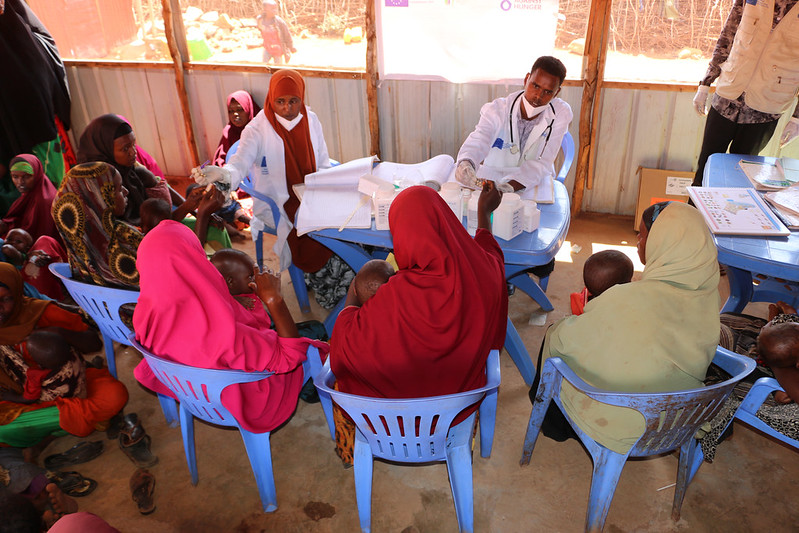Improving Health Care in Somalia
 Healthcare has become a critical issue for Somalia. With only one government hospital in the capital, many residents are forced to pay substantial amounts for health care. Additionally, health care services are more accessible in urban areas than in rural regions, creating a disparity between these sectors. By 2024, Somalia had also encountered numerous humanitarian challenges exacerbated by poverty. This has included natural disasters such as droughts and severe flooding in 2023, which devastated crops and infrastructure. However, several organizations are working to rebuild Somalia, focusing on improving its health care system.
Healthcare has become a critical issue for Somalia. With only one government hospital in the capital, many residents are forced to pay substantial amounts for health care. Additionally, health care services are more accessible in urban areas than in rural regions, creating a disparity between these sectors. By 2024, Somalia had also encountered numerous humanitarian challenges exacerbated by poverty. This has included natural disasters such as droughts and severe flooding in 2023, which devastated crops and infrastructure. However, several organizations are working to rebuild Somalia, focusing on improving its health care system.
Medair
Medair provides free health and nutrition services to those who cannot afford care, significantly reducing mortality and morbidity rates, especially among children. It has also integrated health services with education on disease prevention to improve overall community health. Additionally, recognizing the impact of family issues like domestic violence, family separation and child labor on mental health, Medair has established child-friendly spaces in Somalia. These spaces offer a supportive environment where children can receive therapy and other assistance to alleviate stress.
For instance, Medair has been invaluable for people like Fadumo and her son Hassan. Their family relies on the father’s income as a construction worker, insufficient to cover their health care needs. With few hospitals accessible due to general shortages in Somalia, Medair’s support has been crucial. Fadumo joined the malnutrition program for pregnant mothers, which helped her regain her strength. Her son, who was also malnourished, received prompt treatment and was able to recover.
International Committee of the Red Cross
In extreme natural disasters like droughts, families in Somalia often struggle to reach the nearest hospital. To address this challenge, the International Committee of the Red Cross (ICRC) works to improve access to health care. The ICRC supports four hospitals and 27 primary care centers in Somalia, ensuring they are adequately staffed to prevent check-up delays. Additionally, the organization provides material assistance by ensuring health care facilities have access to clean water and the necessary tools to address malnutrition. The ICRC also offers rapid support for patients who are shot or severely injured.
The ICRC also engages with local citizens to ensure their safety and protection, particularly during conflict. In response to large-scale armed attacks or the use of explosives, the ICRC has a designated plan and delivery strategy to provide extensive support and prioritize care for the most severely wounded.
Somalia’s First Aid and Pre-Hospital Emergency Care program facilitates comprehensive pre-hospital care by recruiting staff and ensuring the correct delivery of medicine. Additionally, the program offers first aid training for communities, empowering individuals to contribute to improving their community’s overall safety and health.
Somali Universal Health Coverage
After three decades of conflict, health care in Somalia has significantly deteriorated, with up to 70% of the population living in poverty. Recognizing the need for improvement, the government has prioritized primary health care as a crucial initiative to enhance community health. This approach aims to provide comprehensive care for individuals throughout their lives, ensuring the highest quality of treatment. Somalia has undertaken several key actions to advance toward universal health coverage.
First, a coordination system was established to ensure adequate staffing at every district level and monitor hospital medicine availability. Emergency preparedness is a critical component of Somali Universal Health Coverage; one approach includes strengthening warning systems to allocate health services before sudden droughts or floods impact food supplies. Additionally, the role of the Ministry of Health has been expanded to regulate better and finance these initiatives effectively.
Final Note
Somalia’s health care system, severely impacted by decades of conflict and high poverty rates, has seen some improvements through various initiatives. Efforts by organizations like Medair and the ICRC, along with government-led actions such as enhanced coordination and emergency preparedness, are working to address critical health needs and provide essential services. Despite progress, significant challenges remain, highlighting the need for comprehensive support and development in Somalia’s health care sector.
– Linda Yoonseo Lee
Linda is based in Phoenix, AZ, USA and focuses on Good News for The Borgen Project.
Photo: Flickr
